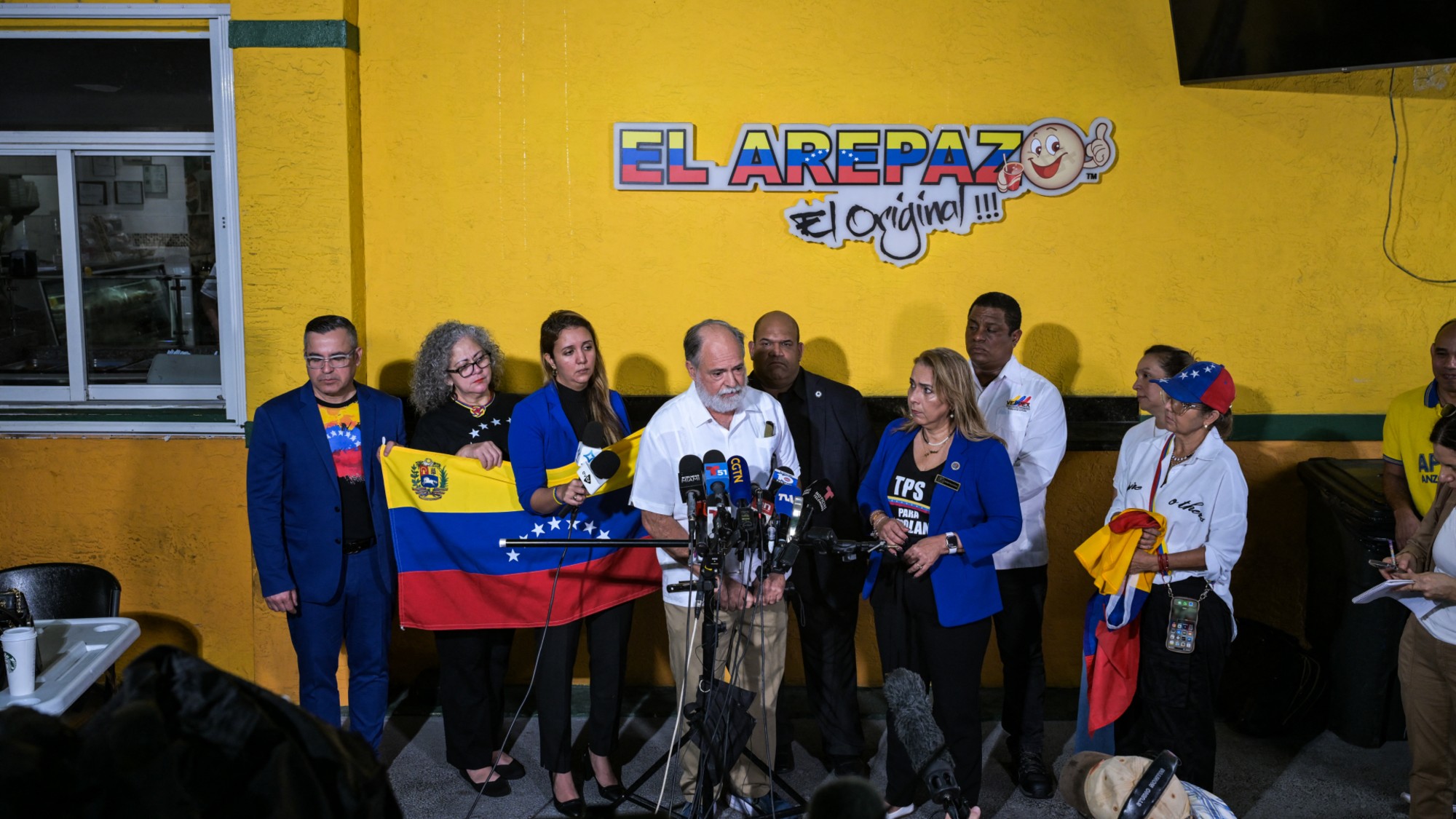The impact of protective-status removal for Venezuelan migrants
The White House ended a program that was stopping thousands of Venezuelans from being deported


A free daily email with the biggest news stories of the day – and the best features from TheWeek.com
You are now subscribed
Your newsletter sign-up was successful
The White House's ending of a temporary immigration program that protects migrants in the U.S. could spell deportation for more than 300,000 Venezuelans who were previously allowed in the U.S. under Temporary Protected Status. The TPS program allows migrants to seek shelter in America "due to conditions in the country that temporarily prevent the country's nationals from returning safely," according to the U.S. Department of Homeland Security. Following Trump's decision, these Venezuelans could be deported back to the authoritarian regime from which they fled.
What migrants stand to lose
The removal will be published on Feb. 5 and is set to take place 60 days later. Ordered by Homeland Security Secretary Kristi Noem, the document will leave the Venezuelans in question "vulnerable to potential deportation in the coming month," said The New York Times. The 300,000 Venezuelans for whom TPS was removed had protections through April; an additional 250,000 have "protections through September and for now will not be affected," but this initial move "suggests that they and others under TPS could be in danger of losing their status in the future."
Once the TPS protections officially lapse, these migrants "lose their ability to work in the U.S. legally and become vulnerable to being detained and deported by Immigration and Customs Enforcement," said CBS News. Trump has said that Venezuela has "agreed to accept migrant deportees from the U.S., after rejecting American deportation flights for years." But these orders "echo a broader crackdown by Mr. Trump on illegal immigration and humanitarian programs that allowed some migrants to come or stay in the U.S. legally."
The Week
Escape your echo chamber. Get the facts behind the news, plus analysis from multiple perspectives.

Sign up for The Week's Free Newsletters
From our morning news briefing to a weekly Good News Newsletter, get the best of The Week delivered directly to your inbox.
From our morning news briefing to a weekly Good News Newsletter, get the best of The Week delivered directly to your inbox.
A separate report from CBS News found that the Trump administration is planning on drafting similar orders to revoke temporary legal status from migrants of other countries. This includes Cuba, Haiti and Nicaragua, all places from which migrants were allowed into the U.S. under former President Joe Biden.
'They set foot in Venezuela and they will be jailed'
Trump's protection removal has "sent tremors through the Venezuelan community, as some face a possible return to a country whose regime has been dubbed illegal by the U.S.," said NBC News. For many of these immigrants, going back to Venezuela "would be almost suicidal," activist Beatriz Olavarria said to WTVJ-TV South Florida. Some of those with TPS that "have spoken about the situation in Venezuela on cameras and everywhere, they set foot in Venezuela and they will be jailed," she added.
Venezuelan President Nicolás Maduro has been widely cited as running an authoritarian government, and there are no plans to recognize him as the country's legitimate leader, U.S. Secretary of State Marco Rubio said in an interview. The U.S. government is offering a $25 million reward for Maduro's capture. This offer was enacted by the outgoing Biden administration and remains under Trump.
As a result, many "human rights advocates and Venezuelan opposition politicians have warned against repatriating the citizens of a country that under Maduro has been an economically failing, politically repressive pariah state," said The Washington Post. Despite this, deportations remain likely. "Yesterday ICE took a friend and her husband. There's anguish," Venezuelan migrant Tatiana Vazques said to Reuters.
A free daily email with the biggest news stories of the day – and the best features from TheWeek.com
Justin Klawans has worked as a staff writer at The Week since 2022. He began his career covering local news before joining Newsweek as a breaking news reporter, where he wrote about politics, national and global affairs, business, crime, sports, film, television and other news. Justin has also freelanced for outlets including Collider and United Press International.
